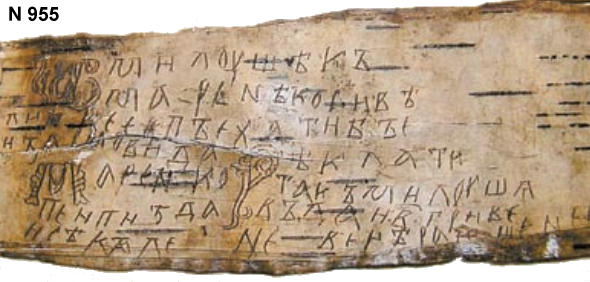There is a widespread belief that swear words are borrowings that entered the Russian language during the time of the Horde. We checked whether there is evidence for this version.
About this etymology of obscene roots tells, for example, Yuri Kanygin in the book “Milestones of Sacred History: Rus'-Ukraine”. In 2012, in his LiveJournal, this theory put questioned (but not denied) by designer Artemy Lebedev. The version about the Horde origin of swearing has become a popular topic for jokes both on thematic websites, and on air KVN.
There are different terms to denote “bad” words: obscenities, obscene language, profanity, obscene words - and all of them have slightly different meaning. Mat is considered the narrowest of these categories, and in 2013 Roskomnadzor explained, which refers to only four roots. We are talking about the “x” word to denote the male genital organ, the “p” word to denote the female genital organ, the “e” word to denote sexual intercourse and the “b” word to denote a girl with reduced social responsibility, as well as all derivatives of their roots. With this classification in general agree and philologists.
St. Petersburg State University professor, philologist Valery Mokienko in the article “Russian swear words: censored and obscene” reports, that, contrary to the widespread misconception about the Horde origin of the Russian mat, its main roots are of Slavic origin. Thus, the euphemism for the male genital organ comes from the same root as “needles,” that is, it is something caustic, and the euphemism for the female genital organ is related to the verb “to write.” In turn, an obscene word for the process of copulation connected with a Proto-Slavic root meaning “beat, hit”, and to denote a slutty girl - with words like “fornication, delusion.” Similar roots with the same meanings There is and in the languages of the Slavic peoples who did not survive the Tatar-Mongol invasion, which also casts serious doubt on the version of their Horde origin.
Birch bark letters can serve as evidence that the roots, now known as obscene, were known long before the arrival of the Horde. For example, the word "p***a" meets in document No. 955, discovered during excavations in Novgorod and dating back to the second half of the 12th century. Its text was “translated” by the outstanding linguist Andrei Zaliznyak into modern Russian as follows: “From Milusha to Marena. Big Braid - she should marry Snovid. Marenka! Let the birthing womb drink! Scientist claimed, that similar phrases existed in local folklore of that time: “It is clearly associated with “shameful” songs, which form an important part of the folk wedding ritual, the original function of which is to magically promote fertility and procreation. In this case, the “cherished” vocabulary does not have any abusive connotation: it appears within the framework of its original sphere, where it still clearly retains its original sacred and ritual character.”

Zaliznyak’s version of the ritual nature of vocabulary, now recognized as obscene, is also supported by other scientists. Linguist Anatoly Baranov believes, that among many Slavic peoples, swear words were associated, for example, with calling rain, asking for a good harvest and other rituals with a similar purpose. At the end of the 10th century, Christianity came to Rus', and they began to fight against such words and expressions - not because of cacophony, but precisely because of their connection with paganism. The taboo nature of such vocabulary led to the fact that they began to use it when showing maximum emotionality - it was this exceptional “power” of obscene expressions that allowed them to live for more than a thousand years.
Photo: artifex.ru
Not true
- V. Mokienko. Russian swear words: censored and obscene
- 15 questions about the Tatar-Mongol yoke
- “Mat needs to be saved.” Why are philologists more concerned about the future of swearing than foreign words, feminives and the emphasis in the word “ringing”?
- Story about the ban on swearing in NMDNI-2014
If you find a spelling or grammatical error, please let us know by highlighting the error text and clicking Ctrl+Enter.







